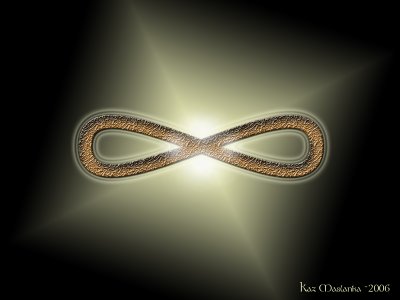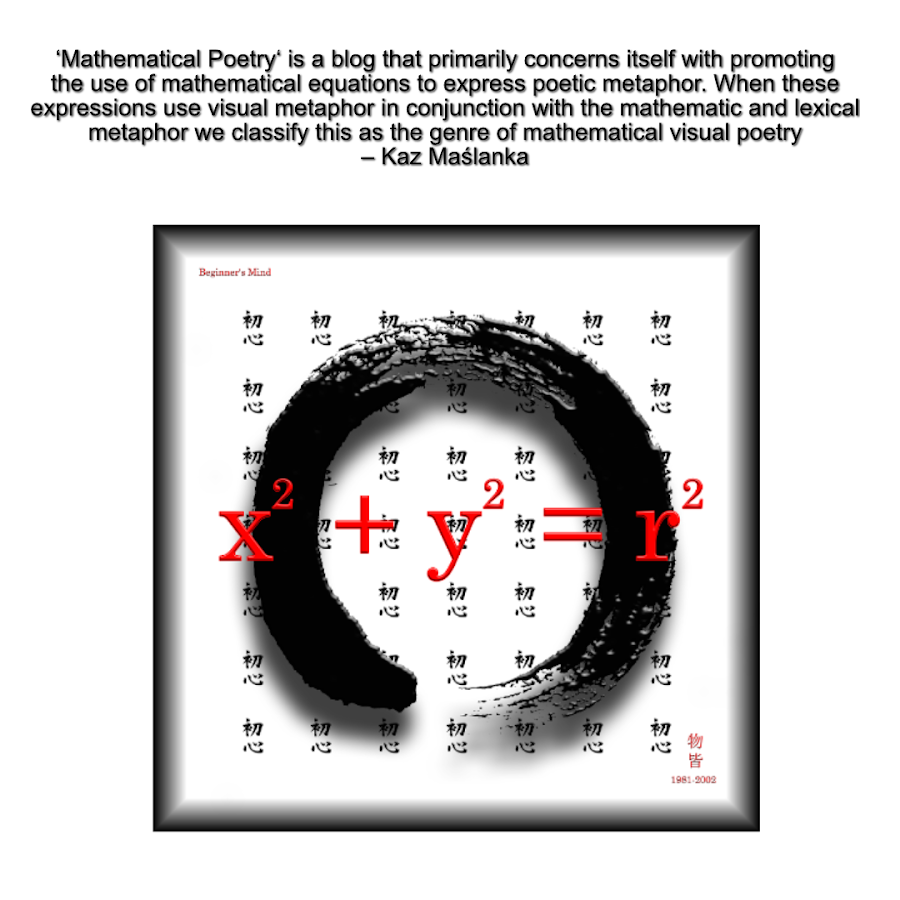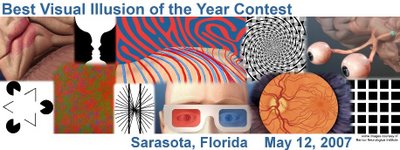
I tend to think that without logic, you cannot communicate and without communication, you cannot have a philosophy. To me logic presupposes philosophy ... Logic is the supportive structure for thought without it everything would fall apart, no one could predict where our next meal would come from, much less anything else. The other side of the coin is that without a philosophy coloring ones theory of logic, ones logic has no starting point. In this sense, ones logic can have no logic without a philosophical stone to stand on. It is a vicious circle!
The clipping below originally came from a polytope list and was sent to me by my friend the mathematician Paul Gailiunas. My original question to him a few weeks ago concerned the importance of infinity within modern scientific equations. Math poets seem to gravitate toward using infinity in our math poems and as professor Gailiunas told me scientists tend to avoid infinity as much as they can. The following is an example of scientific thinking in this area.
Kaz,
This came from a completely different direction.
I thought you might beinterested.
Paul
On Thu 7 Sep 2006 (21:46:48 +0100), guy@steelpillow.com wrote:On Wed, 6 Sep 2006 08:54:09, "Wenninger, Magnus" wrote:>the word Finitism caught my attention. Wow! I thought ...>This is something I have to bring to the attention>of our List. You can find it at:>http://plato.stanford.edu/entries/geometry-finitism/ In schools of divinity it is often said that philosophy is the handmaid of theology. But I think it is equally true that philosophy is the handmaid of>mathematics as well. How about that? At risk of wandering a little off the List's home territory, I find it hard to think of a discipline which does *not* rely on philosophy as its handmaid. Without philosophy there can be neither meaning nor logic, and without these there can be no rational thought or communication of ideas. I was of course intrigued to find another discipline where the broken natureof Euclidean lines causes a broken theory. I get the impression from Mathworld that discrete projective geometry is a fairly developed discipline, and I wonder whether finitists would, like us reciprocists (I shy away from"dualists" where theology appears in the same message!), do better to keep their distance from old Euclid's ghost. It seems to me that finitism is intimately bound to the philosophy of science. I recall the verification principle, favoured by logical positivists, that no statement has any meaning unless it can, at least in principle, be verified byexperiment. As a philosophical principle it fell at the first hurdle - how do we verify the verification principle itself? - and logical positivism soon faded from all but the history books. The principle remains a cornerstone of the scientific method - an article of faith that reality has an ultimate order. A finitist might observe that if something is suspected to be infinite, then this cannot be verified by experiment, and therefore no infinity has any scientific value. It follows that any mathematical model of any scientific phenomenon should preferably contain no infinities. Of course, if we seek a mathematical model of the underlying reality rather than the scientific observations alone, then we are using our maths to do philosophy and are not restricted to finitism.Modern quantum mechanics and general relativity are both plagued by infinities. Does this mean that they are in truth philosophical theories, with little to offer the hardworking scientist but approximations and embarrassing work arounds? If so, then where should philosophy end and theology begin? And why?
 Unfortunately to see it you must click here
Unfortunately to see it you must click here 






